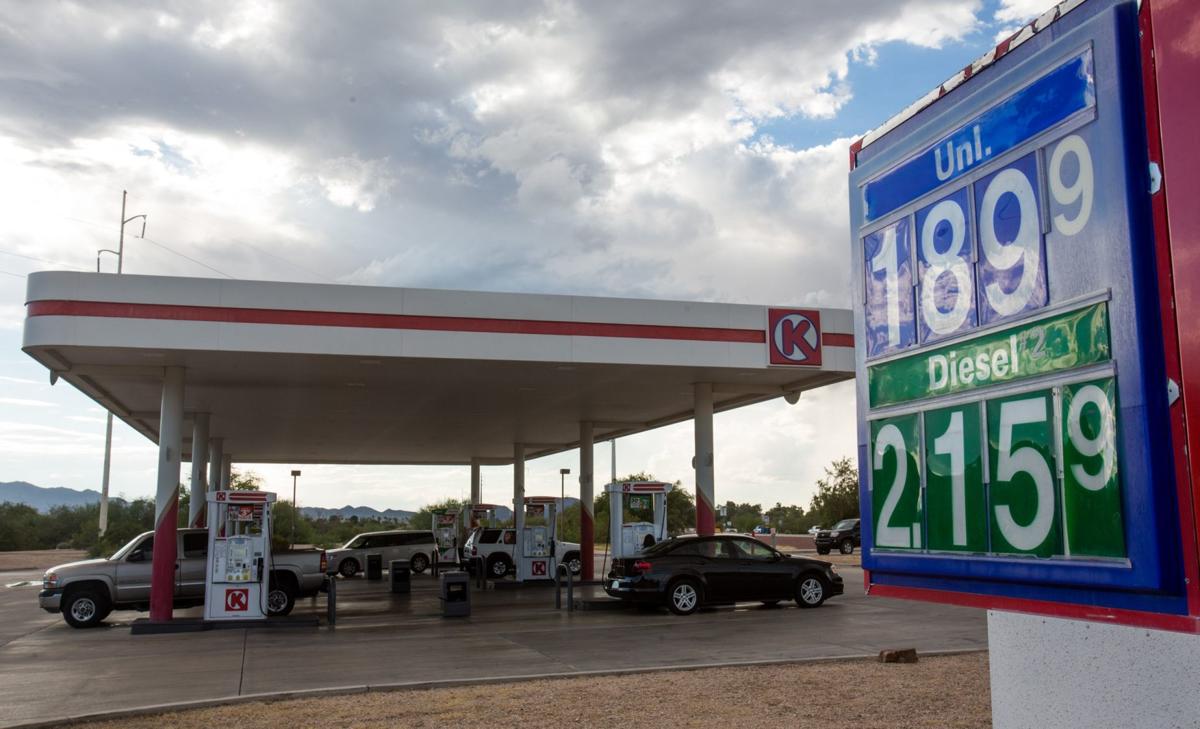Saying Arizona roads are crumbling due to neglect, a Prescott lawmaker is pushing a plan to eventually more than double the state’s 18-cent-a-gallon gasoline tax.
The legislation by Republican Rep. Noel Campbell would hike the levy most motorists pay in three steps, reaching 43 cents a gallon by the middle of 2021. And HB 2536 would automatically adjust it annually to reflect inflation.
But Campbell is not just hoping to raise an additional $1 billion from those who use gasoline-powered vehicles. He also wants to hike the levy on diesel fuel and impose new taxes on natural gas and propane based on their equivalent energy value with gasoline.
Nor is he letting the drivers of hybrids and electric vehicles off the hook.
His measure would add a levy of $80 a year to the registration fees of vehicles driven by a combination of electricity and other fuels. And the owners of all- electric vehicles would pay $198 a year more.
Campbell said that’s based on what would be the taxes that would be raised if motorists who drive an average of 12,000 miles a year were buying gasoline.
He is hoping to get the bill a hearing in the House Transportation Committee he chairs this coming week.
The way Campbell sees it, the problem is a combination of more fuel-efficient vehicles and inflation.
He said the number of cars and trucks using Arizona roads continues to increase each year. But since they are more efficient, motorists are buying less gasoline.
How bad is the situation? Figures from the state Department of Transportation report the number of gallons of fuel sold between 2005 and 2015 was virtually unchanged, though there has been an uptick since then as drivers, perhaps spurred by affordable gasoline prices, switch to larger vehicles.
By contrast, there were 5.9 million vehicles registered in Arizona in 2005. There are now 8.5 million.
Then there’s the fact that the 18-cent-a-gallon levy hasn’t been changed since 1991 when 18 cents was worth more.
Campbell has another way of looking at it.
In 1992 gasoline was selling nationwide for about $1.10 a gallon. So the tax made up close to 17 percent of the cost.
Now, with gasoline recently in the $2.60-a-gallon range, state taxes make up less than 7.5 percent of the total paid.
Campbell cited ADOT figures that the state is generating enough cash solely to adequately maintain just 47 percent of the roads for which it is responsible. And that doesn’t deal with what he said are future needs to build new freeways and widen existing roads.
The problem, he said, is not convincing people of the need for more dollars. Campbell said he has the support of the trucking industry, the folks who are purchasing large quantities of fuel. He said they understand the dollars lost due to delays when their vehicles are tied up in traffic.
The problem is lining up the votes of two-thirds of both the House and Senate and the consent of Gov. Doug Ducey, who has been on record as saying he would not support any tax hike of any kind.
“It’s a political issue,” Campbell said.
“It would be so much easier if the governor would support what I’m trying to do,” he said, noting that he voted for Ducey. “But policy-wise I differ with him because this is an urgent need.”
All that presumes that a bill would even get to the governor.
Voters in Maricopa, Pima and Pinal counties have approved their own sales-tax hikes to pay for their own transportation needs, though the future of a Pinal levy remains unclear following a judge’s ruling that it was crafted in an illegal manner.
But Campbell thinks he can still get urban lawmakers to approve the plan.
He figures the additional taxes would generate close to $1 billion a year, about three-fourths of that from higher gasoline taxes and the balance from the taxes on other fuels and electric-powered cars. More to the point, he said the current distribution formula would remain the same.
“In that formula, Maricopa and Pima counties will get about 60 percent of the revenue,” he said.
There’s also the fact that Campbell figures about 15 percent of the fuel sold in Arizona is bought by people just driving through from one state to another.
Campbell’s bill is being pushed by the Arizona chapter of the Associated General Contractors. These are the firms that make their money in heavy-duty construction, including new roads.
So far, though, the record shows Campbell has an uphill fight.
Campbell tried two years ago for a 10-cent-a-gallon increase. But that bill faltered.
“I know it’s an uphill fight,” he said. “On the other hand, I’m not going to sit here as Transportation (Committee) chairman and do nothing while I see needs of transportation infrastructure falling apart.”
About the only thing Campbell did manage to push through was a bill allowing the Department of Transportation to boost vehicle-registration fees to an amount equivalent to fund the Highway Patrol.
That, in turn, freed up gasoline tax dollars that were being used to finance the agency.
Campbell told colleagues at the time that the levy would be about $18 a year. But by the time it was computed by ADOT, it hit $32 a vehicle. And lawmakers hit the roof, voting in committee earlier this month to scrap the fee and the $185 million it raised.
That measure faces an uncertain future as Ducey has promised to veto any repeal.





